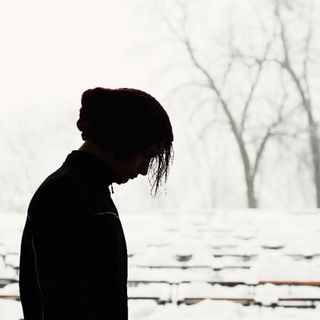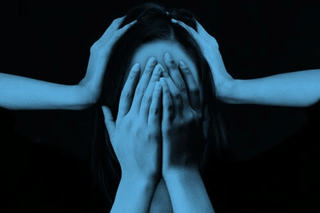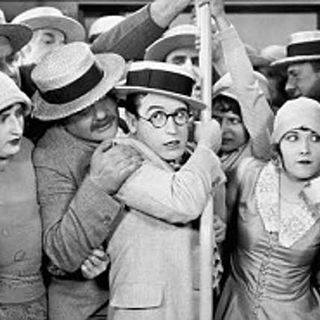
What It’s Like to Live With: Post‑Traumatic Stress Disorder
“I didn’t feel safe anywhere, not even in my own home, with my own people.”

What It’s Like to Live With explores the stories of people who see and experience every day a little differently.
11 July 2006: Nothing is worse than this date, no day darker than this one. I was 26. It pains me to recap the events for you but it was on this date that seven RDX bombs went off, back to back, in local trains in Mumbai in a span of just 11 minutes. I was waiting for the train I usually take, at Khar Road station, on another platform, when I heard a deafening sound. I don’t remember what happened after. Nor do I want to go back to those memories. You can imagine what happens when there’s a bomb blast, rather a series of bomb blasts, in a mode of public transport — and that, too, at a peak hour.
I don’t remember the person I was before this attack because I can’t remember anything. I know just one thing – I survived. But what kind of survival is it when you have nightmares and panic attacks almost every day? I didn’t feel safe anywhere, not even in my own home, with my own people. This broke me. For a very long time, I couldn’t close my eyes, let alone sleep peacefully. If I ever managed to get some shuteye, I experienced dreadful flashbacks and nightmares. When I found out from the news that those bombs had been planted in pressure cookers, I’m not kidding, I couldn’t see pressure cookers anymore. I asked my mother to stop cooking in them because every time their whistle would go off, it would remind me of that day. I became unable to do anything or to go anywhere. I tried hard to get out of this mode and slowly started to immerse myself into my job. I tried to pursue a few hobbies — I enrolled myself in yoga classes, tried to learn the guitar, and insisted on getting a dog, though my family was always against having pets at home. I was getting along, slowly.
When I thought things were getting back to normal, the 2008 attacks on the Taj Hotel and several other places happened. It took me back to the same place. It re-triggered my memories, and I was back on the same day of the train attacks. I again started seeing violent images every time I shut my eyes. I became hyper and found myself being unable to finish even everyday routine things — I remember bathing becoming so difficult because I was unable to be alone. I didn’t know what was happening around me; I couldn’t concentrate on what people around me were talking about. I discontinued working and all my hobby classes. To people, it looked like it just needed a little management, but what I really needed was professional help.
Related on The Swaddle:
What’s It Like To Live With: A Partner With Depression
After a few sessions, I was diagnosed with post-traumatic stress disorder, or PTSD, and honestly, it was a relief because I got a name for my condition; it was real and treatable. I was diagnosed with depression and anxiety, too. It’s going to be close to a decade since I’ve been seeking treatment that includes medication and behavioral therapy. It’s a slow process, but I knew it wasn’t going to be easy, so the fact that it’s taking so long doesn’t pull me down.
Even today, I’m scared at the sight of trains and pressure cookers. Sometimes, I’m scared to attend appointments because I feel like I’m going to revisit those scenes. Sometimes I’m also drawn into thinking it would’ve been better if I’d died that day. It’s difficult to trust, to let people in. It’s been difficult to fall in love, although I try to be accepting of every situation and try to care for others. When people ask me how I’m feeling, I don’t know how many people I can tell that I’m not okay; I still have to put up a face as if everything is okay. It’s really frustrating when they tell me it’s in my hands, that I need to be positive for positive things to happen to me. I want to tell them — I didn’t choose for this to happen to me. Or that they weren’t there when it really happened so they don’t know how this feels. In this process, I’ve lost a few friends also, but I’ve also made some newer ones who understand me.
I’m slowly getting there; it’s a continuous challenge to live with this, but I won’t let it take over my life. I see myself in a better place in a few years.
This interview has been condensed and edited for clarity. As told to Anubhuti Matta.
Anubhuti Matta is an associate editor with The Swaddle. When not at work, she's busy pursuing kathak, reading books on and by women in the Middle East or making dresses out of Indian prints.
Related


India Is the Second‑Biggest Manufacturer of Sugary Beverages Globally: The Lancet
